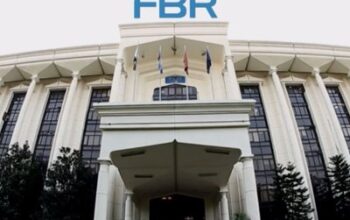By Staff Reporter
ISLAMABAD: The government has backtracked on its tariff reform agenda, retaining regulatory duties on more than 300 import items, a decision that undermines its five-year Tariff Policy Reform plan and casts doubt on its commitment to streamlining trade rules, Dawn newspaper reported on Tuesday.
The Tariff Policy Reform (TPR), launched to simplify tariffs, lower consumer costs, and boost export competitiveness, aimed to eliminate regulatory duties (RDs) on these items starting July 1.
Approved by the prime minister and cabinet, the plan targeted a 50% reduction in the simple average tariff over five years, with bold cuts planned in the early stages to signal reform intent.
Yet, under pressure from domestic agricultural lobbies and select industries, the government has reversed course. Items like seafood, fruits, vegetables, and industrial goods, including polyester filament yarn and ceramics, will retain RDs.
These products represent less than 0.02% of Pakistan’s total imports but still face customs duties of 15-20%, a 2.4% additional customs duty, and now RDs ranging from 10% to 35%, according to Dawn’s report.
Polyester filament yarn, initially set for zero RD, now carries a 2.5% RD atop a 10% customs duty and anti-dumping duties of 5-20%. Regulatory duties on intermediate goods, such as chemicals, hot-rolled coils, and IT hardware, have also risen.
The government expects these adjustments to yield Rs20 billion in extra revenue, but analysts warn they could erode the competitiveness of export-driven sectors like textiles and IT services. This last-minute pivot has tangible effects. The average RD has climbed to 3.72% from a planned 2.96%, lifting the overall simple average tariff to 16.58% from 15.83%.
That rollback clashes with the TPR’s goal of a leaner tariff regime and fuels skepticism about Islamabad’s resolve. With deeper cuts slated for next year in sectors like automotive and iron & steel, analysts fear entrenched lobbying could further stall progress.
The steering committee, which had endorsed eliminating RDs, saw its advice overridden as the government cited revenue needs and industry protection. Original consultants who shaped the TPR were sidelined during final deliberations, their objections ignored, Dawn reported.
The committee had warned that such tweaks would clutter the tariff system and stray from the National Tariff Policy’s vision. Pakistan’s tariff U-turn underscores a broader tension between reform and protectionism. As the country wrestles with economic pressures, the TPR’s credibility hangs in the balance.
Copyright © 2021 Independent Pakistan | All rights reserved




